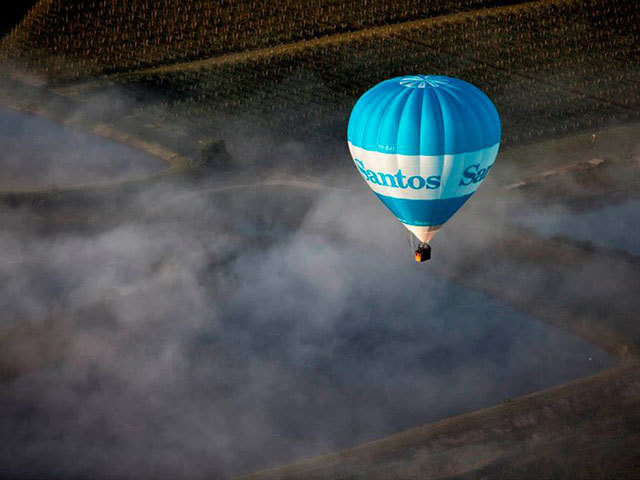
The development of the Santos-led (ASX:STO) Barossa gas project offshore Australia that will backfill the Darwin liquefied natural gas (LNG) export plant could be delayed by up to two years after a Federal Court ordered the operator to stop drilling at the US$3.6 billion project on 21 September.
The court imposed the ban after a successful challenge from an indigenous group against environmental approvals for drilling and completion activities at the Barossa development.
Australian regulator National Offshore Petroleum Safety and Environmental Management Authority (NOPSEMA) has reportedly told Santos to plan for a delay of up to two years, a well-placed market source told Energy Voice.
The hole that Santos is drilling is in the process of being suspended and the operator will move the rig, probably to carry out a Bedout appraisal well.
However, there is some headroom for potential delays given that Barossa is already about 46% complete, with start-up planned for 2025, Krishan Pal Birda, a senior analyst at consultancy Rystad Energy told Energy Voice.
“Santos contracted the Valaris drilling rig from July 2022 to October 2023 and given that these six planned Barossa wells will take an average of 70-80 days to drill and complete, the contract will likely be extended considering this latest suspension,” said Birda.
“The latest court ruling will likely translate into cost increases, over the currently estimated US$3.6 billion price tag, depending upon the duration of the current suspension,” he added.
Backfill for Darwin LNG?
Energy Voice has also heard that Santos is seeking to buy an LNG cargo to pump into Darwin LNG (DLNG) to keep it cold while they wait even longer for Barossa gas to backfill the export plant in the Northern Territory. Shutting down and restarting the LNG export plant would be very costly. Still, buying an LNG cargo will likely cost several hundred million dollars.
DLNG is currently supplied with gas from the Bayu Undan field offshore East Timor, which is running low, and Santos is now rushing to decommission the ageing field with an eye for using it to store carbon from the emissions-intense Barossa development. A CCS hub plan in East Timor has been widely promoted by Santos.
Indeed, a stronger board at Santos might be clamouring for answers about project risk management just weeks after the company deferred a final investment decision (FID) on Dorado. FID has been delayed beyond 2022, citing cost inflation and supply chain challenges, essentially putting the project into recycle.
Empty LNG Export Plant?
Barossa is undoubtedly a significant project that will eventually backfill Darwin LNG, where the current supplying field – Bayu-Undan – will run out of gas later this year. This will leave the LNG plant idle until Barossa starts up, noted Birda.
“On top of that, Santos has already signed a long-term agreement to supply 1.5 million tonnes of LNG per annum from Barossa to Diamond Gas International, representing 80% of Santos’ equity LNG volumes, while the Japanese and Korean partners have also invested in the project to gain equity LNG volumes,” said Birda.
“From a global LNG standpoint, Rystad Energy’s forecast suggests that the market will be tight going forward against existing and sanctioned supply, meaning projects in the pipeline are required to come online to plug the potential gap. If Barossa is significantly delayed, then it would take 3.75 Mt of LNG off the market in 2027 when we expect it to reach full capacity,” cautioned Birda.
“And since this is one of the few projects in the Asia Pacific basin, it is all the more critical for its buyers. They will need to replace this from the US, which of course will mean higher costs and risks associated with the Atlantic basin. So, any delay in Barossa will have an all-around impact,” he warned.
The Barossa gas field is located 300 kilometres offshore Darwin in northern Australia. Barossa will be developed via a FPSO with six subsea production wells, in-field facilities and a gas export pipeline tied into the Bayu-Undan to Darwin pipeline system that supplies gas to Darwin LNG.
Participants in the Barossa project are Santos (50% and operator), South Korea’s SK E&S (37.5%) and JERA (12.5%).
Darwin LNG is owned by Santos (43.4%), SK E&S (25%), INPEX (11.4%), Eni (11%), JERA (6.1%) and Tokyo Gas (3.1%).
